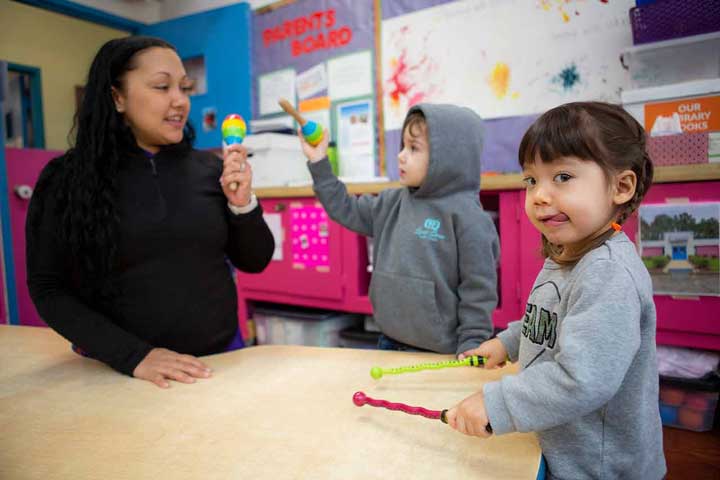Past, Present, and Future
The AEII initiative was born out of a plan to ensure that all of Virginia’s state-funded (VPI) preschool classrooms provide a high-quality learning experience for young children.

How We Began
In response to a charge from the 2018 General Assembly, the Virginia Department of Education (VDOE) created a plan to ensure that all of Virginia’s state-funded (Virginia Preschool Initiative, or VPI) preschool classrooms provide a high-quality learning experience for young children.
The plan called for quality improvements in three areas:
- The use of an integrated, evidence-based curriculum.
- Better assessment of teacher-child interactions in the classroom.
- More effective professional development opportunities to support teachers’ practice.
A Call to Action
Out of this plan, the Advancing Effective Interactions and Instruction (AEII) initiative was born.
Implemented by the University of Virginia’s Center for Advanced Study of Teaching and Learning (CASTL), AEII was charged with two responsibilities: 1) To better understand the quality of interactions and instruction in VPI classrooms, and 2) To support the implementation of effective professional development that helps teachers consistently provide high-quality learning experiences for children.
AEII Highlights So Far
Between Spring 2019-Spring 2020, classroom observations of teacher-child interactions were conducted in 1282 VPI classrooms across 120 divisions using the Classroom Assessment Scoring System® (CLASS®). Early patterns indicated that, on average, VPI classrooms provided supportive levels of emotional support and classroom organization, with lower levels of instructional support.
Based on these observations, AEII provided over 2,500 teachers and education leaders with the supports, tools, and resources needed to identify tailored professional development options. AEII also supported 122 school divisions via ongoing regional, local, and individual meetings, trainings, and webinars.
In March 2020, the General Assembly expanded the charge to all publicly funded preschool classrooms, including VPI, Early Childhood Special Education (ECSE), Title I, and 3-year-old classrooms.
In 2020-2021, AEII conducted observations in 442 classrooms across VPI, ECSE, and Title I programs. Due to the COVID-19 pandemic, AEII only observed classrooms with in-person instruction. The observation team implemented various observation modalities to use in classrooms in coordination with each school division’s health and safety protocols.
Additionally, in Fall 2020 AEII rolled out new Social-Emotional and Equity resources for all early childhood programs to address the increased needs related to COVID-19. The resources included videos, webinars, the ECE Resource Hub, and guides for leaders to support PD for teachers in professional learning communities (PLCs), trainings, coaching, and/or self-study sessions.
In 2021-2022, AEII collaborated with VDOE and Virginia’s Quality Improvement Partners to implement Practice Year 1 of the new statewide unified measurement and improvement system, or VQB5. AEII conducted external observations in select birth-to-five classrooms, including center-based, school-based, and family day home programs, and provided leaders feedback and resources to support the alignment of their external and local CLASS data. AEII continued to provide leaders resources and supports to enhance their ability to provide teachers high-quality, individualized professional development (PD). AEII also provided virtual coaching to select teachers to help them implement equitable social-emotional teaching practices with every child.
In 2022-2023, AEII collaborated with VDOE and Quality Improvement Partners to implement Practice Year 2 of the statewide unified measurement and improvement system, or VQB5. AEII focused on providing social-emotional coaching services to classrooms with identified needs (using CLASS® data) to ensure that children have high-quality experiences across birth-to-five settings, including center-based, school-based, and family child care programs. Intended outcomes of the coaching model were to support teachers’ wellbeing, teacher-child interactions, children’s social and self-regulation skills, and overall learning experiences.
In 2023-2024, AEII continued its collaboration with VDOE and Quality Improvement Partners during the first required year of the statewide unified measurement and improvement system, or VQB5. AEII’s key focus was providing virtual, individualized coaching services to teachers with identified needs (using CLASS® data), aiming to improve the quality of teacher-child interactions and early experiences across birth-to-five settings. AEII piloted in-person coaching services in Virginia’s Ready Region Southeastern. In addition, AEII piloted Leader Consultation with two key aims of supporting leaders in early childhood settings with 1) Understanding & Using CLASS® Data and 2) Giving Effective CLASS® Feedback.
Happening Now
In 2024-2025, AEII continues its partnership with the VDOE to support implementation of the statewide unified measurement and improvement system, or VQB5. No longer providing direct services to leaders and teachers, AEII is focused on housing and creating resources to support high-quality early learning experiences.
Looking Ahead
AEII will continue its partnership with the VDOE to support implementation of the statewide unified measurement and improvement system, or VQB5. AEII will also collaborate with the Virginia Early Childhood Consultation (VECC) program to provide resources and support to programs with Needs Support Quality Ratings.
UNIFIED MEASUREMENT AND IMPROVEMENT SYSTEM
Overview of VQB5
Since 2023, statewide participation in VQB5 is required of all publicly-funded programs.
ANNUAL REPORT
AEII Annual Report
AEII provides yearly reports outlining progress with supporting early childhood leaders and teachers.

